Moshe Barazani
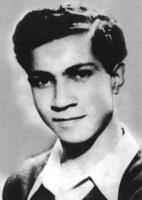 Moshe Barazani was Meir Feinstein's partner in heroism, sacrifice and, ultimately, in death.
The tale of Moshe Barazani and Meir Feinstein has been one of the most heroic and famous tales of modern Zionism,
and is widely dispersed by many sources, as well as elsewhere on this site.
Moshe Barazani was Meir Feinstein's partner in heroism, sacrifice and, ultimately, in death.
The tale of Moshe Barazani and Meir Feinstein has been one of the most heroic and famous tales of modern Zionism,
and is widely dispersed by many sources, as well as elsewhere on this site.
Moshe Barazani was born to Chacham (Sage) Avraham Barazani and his wife Lulu on June 14, 1926 (ב' בתמוז תרפ"ו) in Baghdad, Iraq. His father came from a family of great Kabbalists from Erbil in Kurdistan. His mother Lulu came from the family of Rabbi Yehuda Fatiyah, one of the primary Rabbis of Iraq and one of the leading Kabbalists of the 20th century. (Moshe's last will for his family was that they would read pages from Rabbi Fatiyah's "Minchat Yehuda" for his memory. )
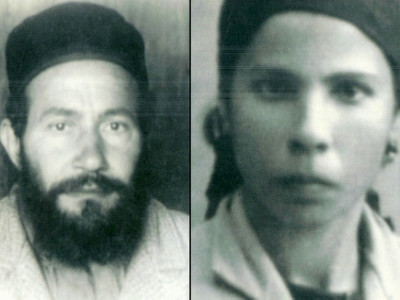
Moshe's parents, Avraham and Lulu Barazani
When Moshe was six years old, his family of seven souls made an Aliyah and arrived in Jerusalem. Like Meir, his later comrade in life and death, Moshe started to work and help sustain his family at a very young age. At first he worked as a carpenter apprentice and later he worked at a soda factory.
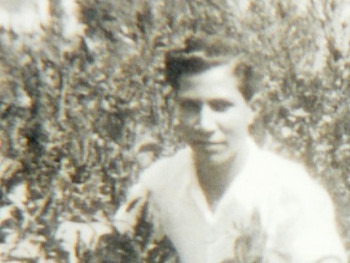
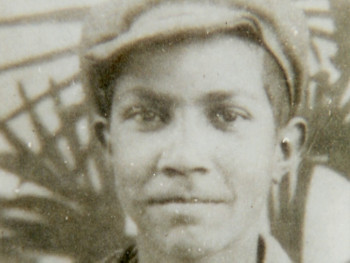
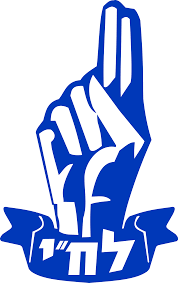 Following the rest of his brothers, Moshe joined the
Lehi to fight the British occupation. First, he helped by hanging the underground pamphlets on the streets
of Jerusalem. As his nephew describes in the video on this page, Moshe's Mom, Lulu Barazani, was also
helping the Lehi by cooking the glue used for hanging the pamphlets.
Later, Moshe participated in various military actions, including the attack on the train station in
"Malcha," a Jerusalem neighborhood.
Following the rest of his brothers, Moshe joined the
Lehi to fight the British occupation. First, he helped by hanging the underground pamphlets on the streets
of Jerusalem. As his nephew describes in the video on this page, Moshe's Mom, Lulu Barazani, was also
helping the Lehi by cooking the glue used for hanging the pamphlets.
Later, Moshe participated in various military actions, including the attack on the train station in
"Malcha," a Jerusalem neighborhood.
During a March 9, 1947 curfew in Jerusalem, Moshe was able to evade the British soldiers and reached his commander where he received his final mission (and as described in the video on this page, it was quite an improvised mission without much planning and any serious intelligence gathering). His mission was to assassinate Brigadier A.P. Davis, who was in charge of the military control of Jerusalem. The British caught him and found a grenade hidden in his pocket. On March 17, Moshe was tried by the British military court of Jerusalem.
Moshe did not recognize the authority of the court and did not actively participate in the short trial. Before the sentence, he only carried a political statement:
"In this war I have felt into your hands and you have no right to put me on trial!
You are not going to scare us with hangings, and you will never be successful to destroy us.
My people, and all the other peoples enslaved by your British Empire, will fight your Empire
until it is totally destroyed."
History has proved Moshe right.
More in Hebrew.
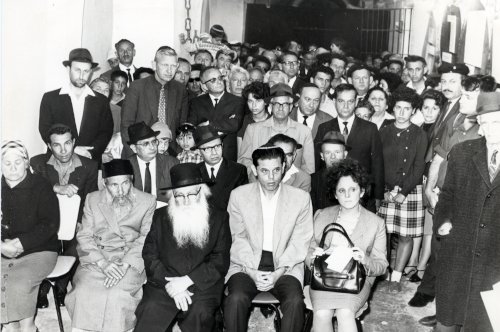
In 1967, after Menachem Begin and his party, Herut, joined the Israeli unity government, the Jerusalem Prison in the Russian Compound was restored as the "Hall of Heroism." The preceding picture shows the ceremony held on that occasion for Feinstein and Barazani. Sitting from left to right in the first row are the late Lulu Barazani, Moshe's mother, the late Chacham Avraham Barazani, Moshe's Father, the late Rabbi Aryeh Levin, the "Father of the Prisoners," My late father and Meir's older brother, Binyamin Feinstein, and the late Rachel Kramer-Rechtman, Meir's fiancée. On the second row, sitting between Rabbi Levin and my father, is the late Menachem Begin, Meir's IZL commander and the sixth prime minister of the state of Israel. The first person from the left in the second row is the late Shaul Barazani, Moshe's older brother, who was also a member of the Lehi. My late uncle Aryeh Zimerman is sitting behind Rachel Kramer-Rechtman. The second person from the left in the third row is the late Eitan Livni, who was the operations officer of the Irgun.
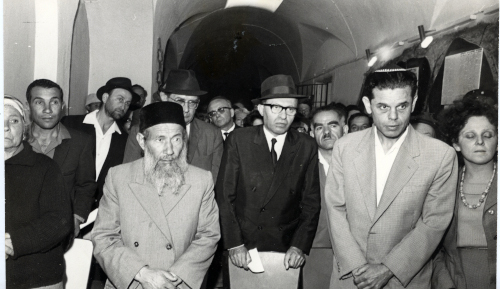
In this close up picture of the Barazani and Feinstein families, the crowed is standing up during Rabbi Levin's speech. It is worth mentioning that the seventh prime minister of the state of Israel, Yitzhak Shamir, who was one of the three commanders of the Lehi, is standing between my father and Menachem Begin.
Amnon Rotem: My Take on the Legacy of Moshe and Meir
I recorded the following video during the conference memorial on Feinstein and Barazani that was held May 5, 2019, at the Museum of the Underground Prisoners in Jerusalem. This was my first meeting with Amnon Rotem, the nephew of Moshe Barazani. I am sure that we have ignited a friendship that will last a lifetime.
In the video, Amnon details the struggle of his family as they lived in Iraq, and after arriving in Jerusalem, the hardship of living in Eretz-Israel at the time. He also talks about and how Moshe, like the rest of his brothers, joined the Lehi, to help the creation of the Jewish state. He describes the final mission of Moshe, his capture, and the short "trial." He explained why Moshe and Meir spared the life of the "Good Jailer," Thomas Henry Goodwin who treated them fairly while he was their guard.
I was very pleased to see that Amnon's main take-away from the legacy (as you can see in the video) is very similar to mine. In fact, I talked about the legacy with my daughter-in-law, Emily, several months before I met Amnon. I told her that my main take-away is that Meir and Moshe were not cold blooded terrorists - they were just true freedom fighters.
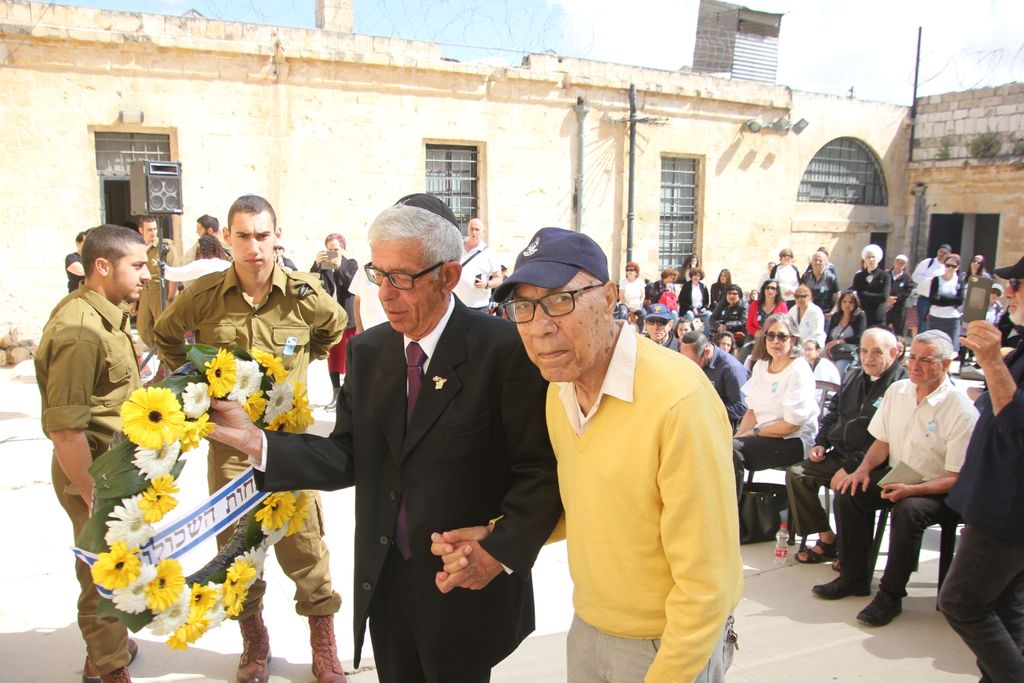
The Feinstein and the Barazani families will forever be united by the heroic events of 1947. In this picture, Moshe's youngest brother, Benjamin Barazani, and my brother, Eliezer Feinstein, are placing the official flower wreath during the Memorial day ceremony of May 8, 2019, at the Museum of Underground Prisoners in Jerusalem.